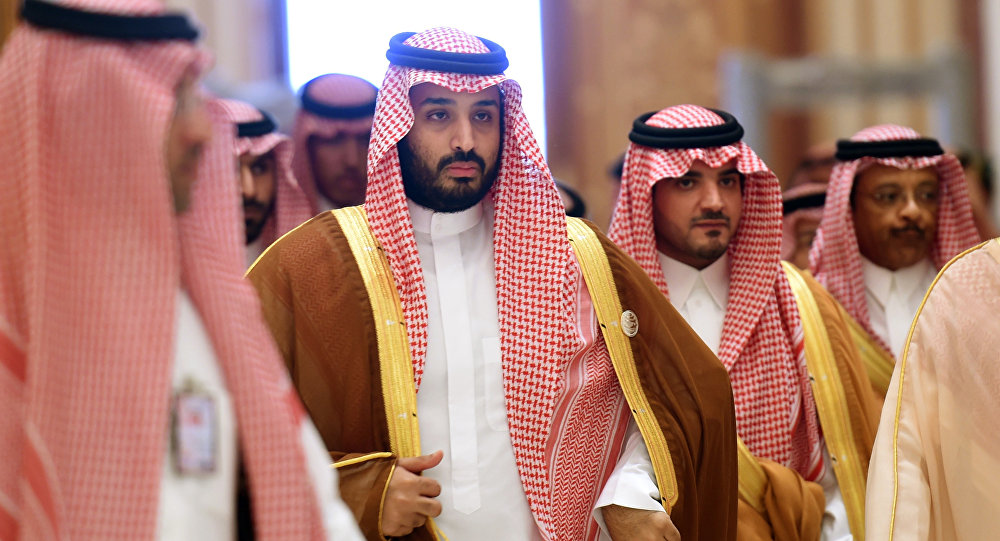Al Arabiya News Channel interviewed on Monday Saudi Arabia’s Deputy Crown Prince Mohammed bin Salman who discussed the Kingdom’s newly-adopted Vision 2030 roadmap, promising an end to Riyadh’s dependence on oil revenue by 2020.
While talking to Prince Mohammad, Al Arabiya News Channel’s General Manager Turki Al-Dakhi raised a number of subjects including plans to put oil giant Aramco’s shares in an initial public offering, the Saudi public investment fund, tourism, a Green Card scheme, expats, defense and further details on the Saudi Vision.
His highness explained that Saudi Arabia will be selling less than 5 percent of oil giant Aramco’s shares via a partial IPO as part of the new strategy, highlighting that it is set to be the “biggest IPO in history.”
He said he expected Aramco to be valued at more than $2 trillion, and expressed his desire to transform it into a holding company with an elected board, adding that subsidiaries of the company would also be sold by IPO.
“The 5 percent is from the parent company,” he said. Aramco is the world’s leading oil producing company, with about 10 million barrels per day of output, or about 10 percent of global production.
With the partial IPO, Saudi Arabia’s economy will be investment-driven, turning the kingdom into a “global player,” said the prince.
He added: “The kingdom can live in 2020 without any dependence on oil … The Saudi addiction to oil has disturbed development of many sectors in past years.”
“We plan to set up a $2 trillion sovereign wealth fund… part of its assets will come from the sale of a small part of Aramco,” the prince said.
He said the fund would comprise current Saudi fiscal assets of around $600 billion, in addition to revenues from the sales of Aramco shares and state-owned real estate and industrial areas estimated to be worth $1 trillion.
“We restructured the fund. We included new assets in the fund, Aramco and other assets, and we fixed the problems of the current assets that the public investment fund owns, both in terms of companies and other projects,” he added.
“Initial data say the fund will have control over more than 10 percent of global investment capacity.”
GREEN CARD, TOURISM AND EXPATS
When asked about the long-awaited topic of the Green Card for expatriates in the kingdom, the deputy crown prince said the scheme “will be ready within five years.”
“The Green Card will allow Muslims and Arabs to live in Saudi Arabia for a long time and will be a source for revenue for the government,” he added.
Prince Mohammed also unveiled Saudi goals to open up for all tourists, “within our beliefs and values,” accentuating the importance of fortifying culture and entertainment in the kingdom.
As for the kingdom’s plans to establish the world’s biggest Islamic museum, Prince Mohammed said: “How can the kingdom be the holiest site for Muslims and have no Islamic museum?”
TRANSPARENCY AND SUBSIDIES
The prince said the Aramco IPO would be a key player in advancing transparency in the kingdom.
“In this day and age, no country can afford to not be transparent.
“There are a lot of benefits to the Aramco proposal, and the most important one and the major one is transparency.
“People in the past used to be upset that Aramco’s files and data are not announced, unclear and not transparent. If Aramco is listed in the market, this means it must announce its lists, it must declare every quarter.
“It will become under the supervision of all Saudi banks and all Saudi analysts and thinkers. Or rather, all world banks and all research and planning centers in the world will intensively observe Aramco.”
The prince had previously said that Saudi Arabia is set to limit the impact of subsidy cuts on citizens.
The proposed system being developed by the Saudi government would provide cash to low and middle income Saudis who rely on subsidies.
He said the planned lifting of subsidies, as part of the Saudi Vision for 2030, will be implemented on everyone, “including princes and government ministers. This is a promise.”
During the interview, the deputy crown prince also confirmed a government aim to reduce Saudi unemployment from 11.6% to 7%.
DEFENSE
On the topic of Saudi Arabia’s military spending, the prince asked: “How could we be the world 3rd largest spender on arms, but we don’t have a military industry?”
He then announced plans to set up a holding company for military industries that would be fully owned by the government at first and listed later on the Saudi bourse.
“We are now about to establish a holding company for the military industries 100 percent owned by the government that will be listed later in the Saudi market …We expect it to be launched by end of 2017 with more details,” the prince added.
SAUDI VISION
The prince asserted that the Saudi Vision 2030 is not related to oil prices.
“The Saudi Vision 2030 was going to be implemented regardless of oil price,” he said, in references to prices plunging to a 12-year low of $32 a barrel in January.
“The Vision doesn’t require high-spending but restructuring.”
Explaining the roadmap, he said it mainly focuses on the kingdom’s strengths, being its religion and Arab heritage, Saudi investment ability and location.
Apropos the King Salman bridge over the Red Sea, announced last week in an agreement with Egypt, Prince Mohammad said the crossing “will link Europe and Asia and will provide vast building and investment opportunities.”
He said the bridge will help move billions’ worth of cargo across the Red Sea.
He added: “All infrastructure projects within Saudi Arabia still stand and will be implemented.”
Prince Mohammed, who is spearheading the roadmap, had previously said that National Transformation Plan – part of the Saudi Vision 2030 – will comprise asset sales, tax increases, spending cuts, modifications to managing financial reserves, an efficiency drive, and a much bigger role for the private sector.
